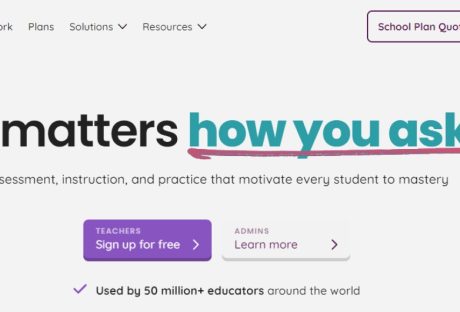You must have heard that choosing a higher educational institution is one of the most important decisions of your life. It decides your future career and the path you will walk into the future. And in fact, it is true.
However, it is the truth as well, where students select higher education based on emotions that vary from person to person. While emotion will not preclude you from making the right decision, such an important decision must go through scrutiny.
If you are shopping around for colleges, you will come across a wide range of factors that will influence you to select a particular higher educational institute. Some of these factors are given below.
- Academic quality.
- Size of the campus.
- Campus safety.,
- Choice of majors.
- Academic fees.
- And then there are your personal emotions.
Key Things To Consider While Choosing Higher Education Programs:
Academics are important, but that is not everything. There are many things that go into a student’s mind while looking for a college for higher studies.
For instance, if you are looking for a high-quality academic facility, Colleges in Dubai will be greater. However, if you are looking for convenience, something near your house will get the job done.
The following factors might help you select the most appropriate higher education institution for you.
1. Academic Quality:
The first thing every student looks for is the quality of education they can get from a higher education institute. Take time to find out what kind of educational culture you want. For instance, you look for how qualified the teachers are, does the institute offers a positive school spirit or does it have a sense of community.
Different people see academic quality in different ways. Find out what kind of academic quality you want and pursue to find an institution that caters to the same.
2. Accreditation:
Before you select any colleges, ensure that the college is accredited. What does that mean? It means that the college you will be applying to has the license to provide academic solutions to the students. If an institution lacks accreditation, stay away from this kind of institute.
Most colleges will readily provide this information on their website or will use this as a marketing campaign to win students during the admission season. However, there will be institutes that will try to hide this fact as they do not have any license to show you.
3. Geographic Locations:
Most students already know what they want, whether they will stay close to home or will find a good college in a different location. Well, this kind of scenario involves several variables. For instance, can you afford to go out, especially in an expensive city?
Geographic location plays an important role for the students to select their higher educational institutions. Moving to a new place for higher education is a lot tougher than how enjoyable it looks.
4. Size Of The Campus:
The size of the institution matters a lot. Why? With a big size, you will be able to choose your favorite major. It depends on whether they want to be a big fish in a small pond or a small fish in a big pond. It all comes down to comfortableness.
Large colleges have more resources to offer. This can include campus facilities like housing, libraries, and other forms of entertainment. On the other hand, small colleges have plenty to offer. But that does not mean they are at a disadvantage. Some colleges choose to remain small to specialize in something.
5. Cost:
Yes, other factors are important on a personal level. However, some way or another, the cost easily trumps them all. There are many educational institutes that need substantial amounts of financial support. Of course, if you are able to get an academic scholarship, then that all changes. Colleges will look at a number of things, including SAT scores, GPA, volunteer work, and strength of schedule. SAT prep is one of the best ways to improve your chances of getting a scholarship because it is much easier to raise your SAT score than it is to raise your overall GPA and make up for a lack of student activities.
Take Away:
There you have it; things to consider while choosing a high educational institute. Here we have enlisted all the important factors that influence the students’ decisions. There are other factors as well, but those factors are more personal than generic.
Read Also:
























